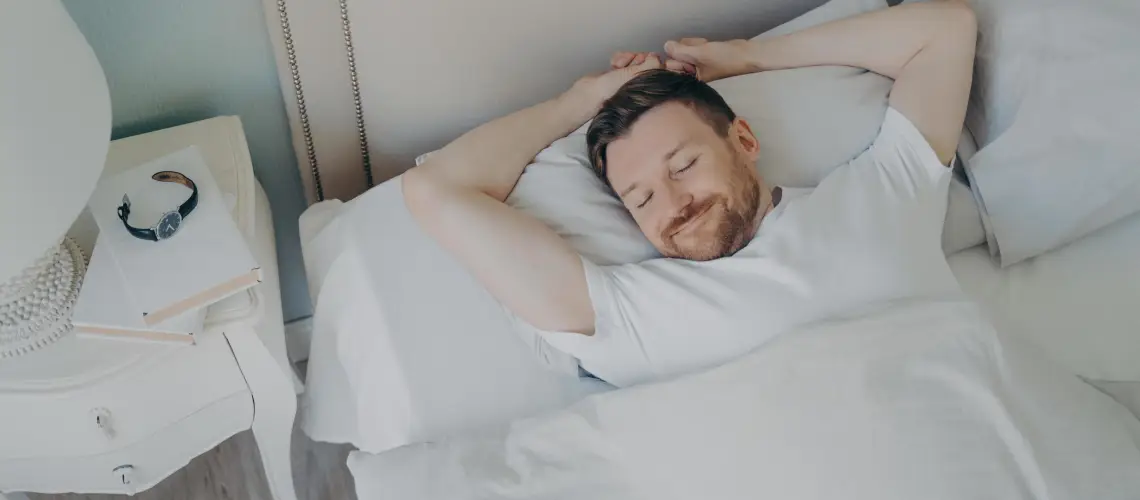Across the country, more Australians are struggling with sleep than ever before. Whether it’s insomnia, restless nights, or waking too early, sleep issues are affecting mental health, work performance, and everyday wellbeing. For some, the search for safe and effective support has led to a surprising yet doctor-supervised option: marijuana.
Used responsibly and prescribed through proper medical channels, marijuana is being explored as a natural sleep aid that complements the body’s own systems—without the long-term effects associated with sedatives or addictive pharmaceuticals.
Sleep Disorders in Australia: A Widespread Challenge
Sleep problems are not just occasional frustrations. According to recent studies:
- Over 40% of Australians report inadequate sleep
- 1 in 3 experience symptoms of insomnia
- Sleep issues are linked to depression, anxiety, and physical pain
- Poor sleep impacts driving, learning, productivity, and family life
The problem isn’t just falling asleep—it’s staying asleep, or feeling rested upon waking. And while some turn to over-the-counter or prescription sleep aids, these can lead to grogginess, dependence, or disrupted REM cycles over time.
How Marijuana May Support Better Sleep
Marijuana interacts with the body’s endocannabinoid system, which helps regulate circadian rhythm, stress responses, and body temperature—all critical to healthy sleep cycles.
When prescribed and used under medical guidance, marijuana may help:
- Reduce time to fall asleep
- Increase time spent in deep sleep
- Lower anxiety and racing thoughts
- Relieve pain that disrupts rest
- Decrease night-time awakenings
Unlike traditional sleeping pills, many patients report feeling more natural rest—not sedation or ‘knocked out’ fatigue.
Forms and Delivery: Choosing What Works for Sleep
There’s no one-size-fits-all product. Doctors can recommend different formats depending on the patient’s needs and sleep pattern:
- Tinctures or oils: Take about 30–60 minutes to take effect. Ideal before bed
- Capsules: Easy to track and part of nightly routines
- Vapourised flower: Acts quickly and can help settle racing thoughts or pain flares before sleep
- Low-THC options: For people who prefer minimal psychoactive effects, these offer calming benefits without disruption
Some formulas combine cannabinoids (like THC and CBD) in ratios that support both the mind and body before rest. CBD-dominant options are particularly popular for those with anxiety-related insomnia.
Safety and Suitability: When Marijuana May Be Appropriate
Marijuana isn’t the right option for everyone, but under medical supervision, it can offer relief to people who haven’t found success with other sleep supports.
Doctors typically assess:
- Duration and cause of sleep issues
- Underlying conditions like anxiety, PTSD, or pain
- History of medication use or sensitivities
- Lifestyle and daily routines that affect rest
For many Australians, marijuana offers a gentle alternative to high-dose sedatives, especially when used alongside techniques like cognitive behavioural therapy, mindfulness, or good sleep hygiene.
What the Research Suggests
Though more research is always needed, early findings and patient reports show promising trends:
- THC may reduce REM sleep, which is helpful for people with nightmares or PTSD-related sleep disturbances
- CBD appears to reduce anxiety and improve sleep latency (time to fall asleep)
- Patients using doctor-supervised marijuana report better sleep satisfaction compared to untreated controls
As medical access improves, so does the quality of data—helping doctors refine prescriptions and improve patient outcomes.
Navigating Legal and Medical Access in Australia
Accessing marijuana for sleep support isn’t about walking into a store or self-dosing. It’s a medical process that puts the patient’s safety and health first.
Here’s how it works in Australia:
- Consultation with an AHPRA-registered doctor (often via telehealth)
- Screening for medical suitability and personal health history
- If approved, prescription of specific product and dosage
- Regular follow-ups to monitor effectiveness, adjust if needed, and ensure safety
Patients gain legal, ethical, and secure access through this model—avoiding the risks of self-sourcing or unregulated products.
Everyday Australians Are Sharing Their Experiences
Patient feedback continues to shape public interest. Here’s what some are saying:
“I wake up feeling rested, not foggy like with sleeping pills.”
“My PTSD dreams have finally eased.”
“I’m not up at 2am every night anymore.”
These stories show that, for the right individuals, marijuana is more than just a trending topic—it’s a life-improving tool.
Marijuana as Part of a Broader Sleep Strategy
Marijuana is not a standalone solution. It works best when part of a holistic approach to sleep, including:
- Creating a calming night-time routine
- Avoiding screens and stimulants before bed
- Managing anxiety or pain throughout the day
- Keeping consistent sleep and wake times
- Reducing alcohol or nicotine, which disrupt sleep quality
Medical cannabis can enhance these strategies—not replace them—offering a path back to natural, deep rest.
The Future of Sleep Support in Australia
As stigma continues to fall away and more Australians seek alternatives, marijuana is poised to play an important role in improving the nation’s sleep health.
From shift workers to parents, veterans to executives—many are turning to doctor-guided, plant-based options that respect both science and personal wellbeing.
The shift is already happening. People aren’t just surviving without sleep anymore—they’re finding their way back to restorative nights and energised mornings.
